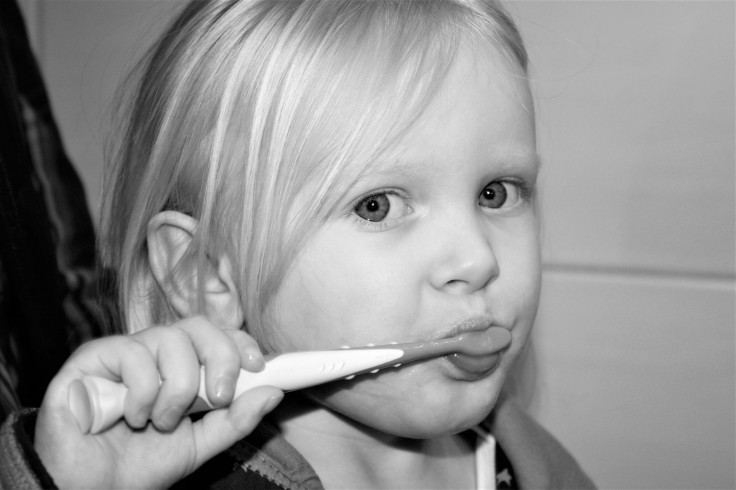
Baby teeth help children to eat and speak and guide the permanent adult teeth into position at the same time; thus, it is important to take care of teeth right from the start.
Regular toothbrushing helps to remove bacteria and plaque that cause tooth decay and gum disease. Introducing teeth brushing must be done early, so kids will know that it is part of their routine. On the other hand, children need help and encouragement to develop such skills over time. Brush teeth twice daily - in the morning and before bed at night.
When the first tooth appears, usually around six months of age, brush gently with a soft children's toothbrush and water. A soft wet cloth can also be used to wipe teeth and gums. Clean all surfaces of the teeth and gums twice a day, in the morning and before bed at night, per Better Health.
Getting rid of plaque and cavities
Proper brushing and flossing can prevent plaque, a clear film of bacteria that sticks to the teeth. After eating, the bacteria break down sugar on your teeth into acids that eat away tooth enamel which causes holes called cavities.
Plaque causes gingivitis, a gum disease that can make gums red, swollen, and sore.
Tartar is harder plaque and is more damaging to the teeth and difficult to remove. Using anti-tartar toothpaste and mouthwash and spending more time brushing the teeth near the salivary glands, the inside of the lower front teeth, and the outside of the upper back teeth may slow the development of new tartar.
Baby teeth play a direct role in the status of health of their permanent adult teeth. If a child develops tooth decay in their baby teeth, such cavities might affect their adult teeth. Once the decay spreads up into the roots of a particular tooth, it can damage the adult tooth hiding there. If the tooth decay gets so bad that the tooth is lost, the adult tooth could come in unevenly or crookedly. Such can lead to uneven gaps and spaces or overcrowding, per Portland Children.
Read Also : Professional Advice for Parenting: How to Turn Little Brats into Peaceful Angels in THREE Days
Deficient dental care by parents seen as dental neglect
The British health insurer Bupa found that almost half of respondents did not know how to brush their teeth properly in a survey of 2,000 people in the U.K. This is after the study determined that brushing teeth effectively lowers the chances of getting a host of chronic diseases, as well as keeping the teeth and gums healthy. However, the majority are brushing their teeth the wrong way.
Bacterias and other microorganisms grow inside everyone's mouth and build a claggy biofilm known as dental plaque. It comprises around 700 different species of bacteria, which became the second-greatest diversity in the human body after the gut and a host of fungi and viruses.
Such bacterias are sticky films stuck to the teeth and soft tissues, needing to be manually cleaned as they can't be easily rinsed off.
According to BMC, a case of a 4-year-old Caucasian boy who had severe dental caries was an outcome of insufficient dental care and concluded that there is a strong association between child abuse and neglect and dental caries. Child abuse and neglect are established in children with severe dental caries, an important factor for insufficient parenting, as severe dental caries indicates child abuse and neglect.
Related Article : How to Teach Kids Good Oral Hygiene